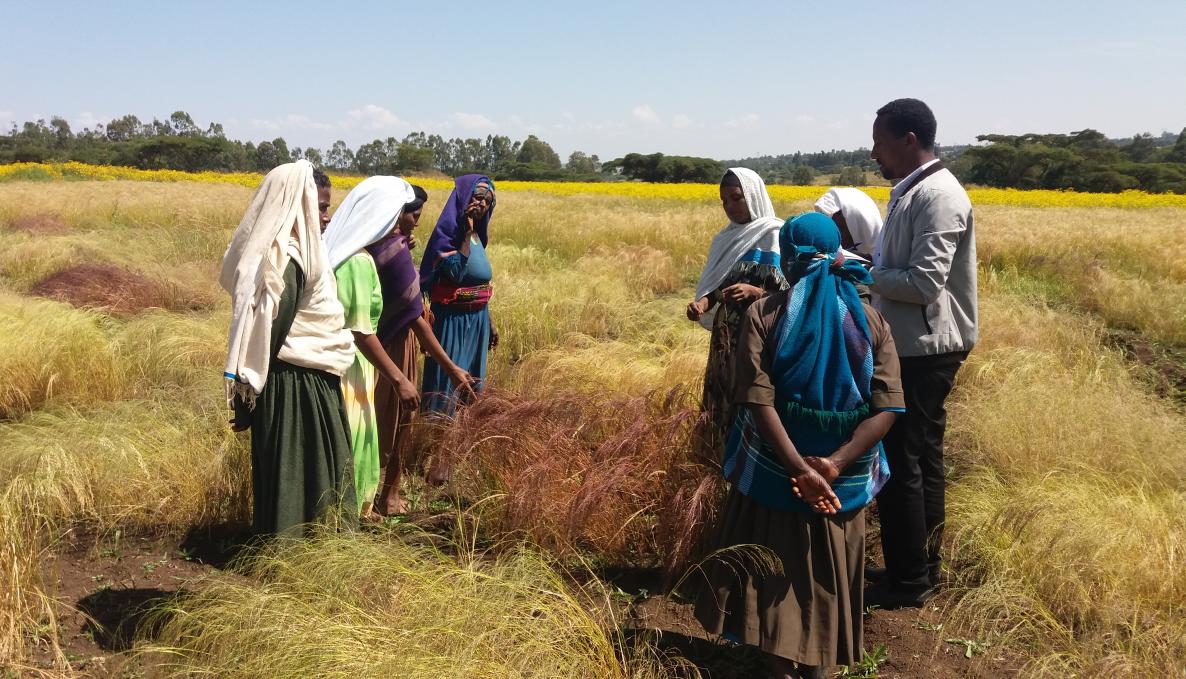Genomic exploration of foods for the future: DNA sequencing of hundreds of teff Ethiopian varieties is a step towards a more sustainable and equitable agriculture ready to tackle climate change
A study from Sant’Anna School in Pisa (Italy) unveils the unique diversity of teff, an ancient cereal grain with high agronomic potential and great nutritional properties

The team of plant genetics at the Sant’Anna School, Italy, is se to use genomic tools to explore and valorize Ethiopian agrobiodiverisy in collaboration with local research partners and smallholder famers. In a new study published on eLife, researchers sequenced the DNA of hundreds of traditional teff varieties collected in the Ethiopian highlands. Teff is an ancient grain cultivated there since thousands of years, and increasingly valued in global markets thanks to its unique nutritional qualities, which feature high concentration of microelements and absence of gluten.
The researchers at Sant’Anna School, in collaboration with Bioverisity International and the Ethiopian Amhara Agricultural Research Insititute, unveiled the large teff agrobiodiversity and studied its impact on productivity and adaptation to a changing climate. The new study discloses new possibilities for teff breeding tailored to local smallholder farmer needs, at the same time identifying teff types that can already respond to the needs for local adaptation. This is the first study providing a large-scale characterization of teff diversity that could propel this species on the international research platform. The findings may contribute to speeding up the development of new improved varieties supporting food security in the Horn of Africa, a hotspot of political instability. At the same time, it could support teff marketability for the international market, contributing in diversify cropping systems and diets.
“These traditional teff varieties are like books in a large library – says Leonardo Caproni, researcher involved in the study – DNA sequencing allows us to read the story in each of these books. It is by learning from these stories that research can write the future of this crop”. A future that, according to the researchers who signed the study, is ever more urgent to be written. By combining genomic information with climate projections, researchers identified areas in Ethiopia where suitability for teff cultivation is expected to decrease due to increasing temperatures and shifting of rain seasons.
Matteo Dell’Acqua, author of the paper and Coordinator of the Center of Plant Sciences at the Sant’Anna School, says that “joining genetics, social sciences, and climate science it is possible to propel breeding of crops with untapped potential, like teff. To understand how these species respond to the needs of local growers unlocks their potential to contribute to a more sustainable and equitable agriculture".
The study is available HERE.



